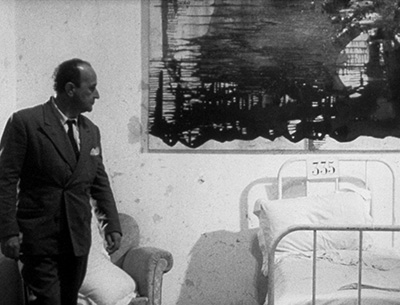
Titanus,
Portrait of a Studio
American attention to the history of Italian filmmaking has tended to examine only the directors of neorealism and art cinema, but over the past few decades, the rich tradition of genre movies from Italy has finally started to receive much-deserved recognition. Similarly, from an exclusive focus on auteurs, interest has widened to include consideration of the films’ production context, including the current rediscovery of one of Italy’s most important studios, Titanus.
Founded in 1904 by Gustavo Lombardo, the studio balanced crowd-pleasing melodramas and comedies with more weighty fare as it grew in importance, building its own soundstages and becoming a major distribution company as well. Its distinctive shield logo would become as familiar in Italy as the MGM lion in the US. With the end of the war, Titanus released the documentary Days of Glory, an important film that helped to reorient Italian cinema from its fascist-era emphasis on glamour and escapism. Shortly thereafter, the studio began producing a brilliant string of intense melodramas by director Raffaello Matarazzo.
Upon the death of Gustavo Lombardo in 1951, leadership of the studio passed to his son Goffredo just as the generation of young filmmakers who would revolutionize Italian cinema began to emerge. Over the next two decades, Titanus would lend crucial support to important early work by Fellini, Antonioni, Ermanno Olmi, Francesco Rosi and Lina Wertmüller, while continuing to produce comedies, melodramas and sword-and-sandal epics. At the same time, it embarked on an ambitious series of international co-productions with studios in France and Hollywood that would ultimately force it to scale back radically. Both the zenith and the crisis for Titanus arrived in 1963, with the simultaneous failure of Robert Aldrich’s Sodom and Gomorrah and the triumph of Visconti’s The Leopard. The amount of money spent on both films forced the company to close temporarily.
It soon reopened, but with more emphasis on distribution than production. Today, under the leadership of Guido Lombardo (son of Goffredo, grandson of Gustavo), Titanus continues primarily as a television company.
The Harvard Film Archive is pleased to offer this series as a tribute to the prodigious depth of Italian cinema in the years from the end of fascism to the economic boom of the 1970s. Alongside films by Olmi, Aldrich, Elio Petri, Dario Argento and others, we present five of the Matarazzo melodramas from the years between 1949 and 1964 as well as four films by the great Valerio Zurlini, arguably the most underappreciated director of the Italian New Wave. – David Pendleton


























